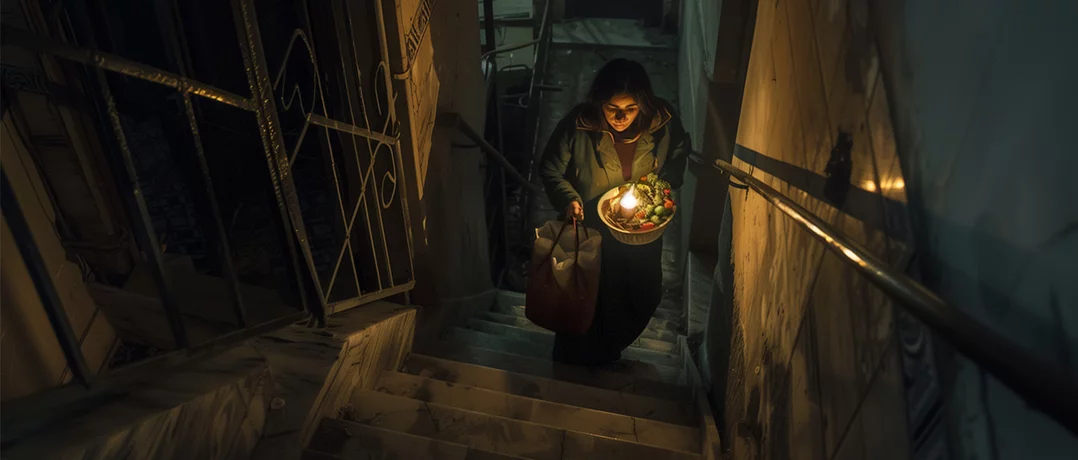Inspired by Nassim Taleb’s Antifragile, this piece explores how Lebanon’s chaos cultivates adaptability, resilience, and spontaneous living.
Antifragile: Lebanon’s lessons, and warnings, for living with uncertainty
Antifragile: Lebanon’s lessons, and warnings, for living with uncertainty


What is the opposite of fragile? Strong? Robust? Vigorous? Ask Lebanese-American writer Nassim Nicholas Taleb, and he has a different answer. The opposite of fragile, he argues, is simply “antifragile.”
As explained in his book Antifragile: Things That Gain from Disorder, Taleb distinguishes between “fragile,” which fractures under stressx, and “robust,” which can successfully endure pressure. Yet there is a third category, he claims, “antifragile,” which thrives under stress.
Antifragile extends beyond resilience. While the resilient merely withstands shocks and remains unchanged, the antifragile adapts and improves.
When I first read the book, Lebanon jumped into my mind only several pages in. “Lebanese resilience” is often considered a cornerstone of the country’s identity. Living in Beirut for the first time during the summer of 2023, I was struck by the vivacity and vigor that persisted around me, even in the wake of a crippling economic crisis and devastating port explosion.
You do not just exist in Lebanon, you live, I told my friends. Part of this “living” manifests in leaning into the spontaneous and adapting to the changes and challenges life throws your way. Lebanon, in many ways, breeds “antifragility.”
Returning to Lebanon two years later, I have come to expect the unexpected, the sudden, and the unpredictable. People make plans for the now, as opposed to the tomorrow or the day after.
If you consider the political and economic instability Lebanon has confronted since the advent of its civil war in 1975, the instinct to center one’s life around “today” is a logical reaction to a life marked by uncertainty; the refusal to plan is less of a choice and more of a need.
Compare such a mindset to what exists in the US, however, and the difference could not be starker. Far from welcoming unpredictability, there is a tendency to compulsively plan ahead. Americans, I have found, seek to organize our lives to minimize any future ambiguity as early as possible.
Consider the job recruitment process for college graduates at American universities. Many firms, particularly those in the finance industry, begin recruiting in Sophomore and Junior year. If you perform well, you accept a job that will begin post-grad. In other words, you have signed off on a future that will not be realized until more than a year.
This needs to structure a secure, meticulously planned future translates to our personal and social lives. You want to grab coffee with a friend? Schedule it at least one week in advance. You wish to plan a group trip to the beach? Finding a weekend that works for you all will become a strenuous task. If you ask someone when they are free, rarely do you hear the words “today” or “tomorrow” as a response. “Next Wednesday” or “the following Friday” is a far more likely reply. Whenever I am back in the US, I miss the spontaneity of Lebanon and the willingness to plan for the short-term, as opposed to emphasizing the long-term. My plans for the week feel rigid and unyielding.
Yet there is danger in romanticizing the chaos, in glorifying the disorder. To praise Lebanon as merely “antifragile” without acknowledging the hardship and pain its people have endured would be a reductive understanding of its history.
As noted by Taleb, “acute stress,” that which reacts to a short-term, imminent danger, can be beneficial. “Chronic stress,” however, harms. In many ways, Lebanon has been subject to chronic stress and, as a result, experienced great harm. I do not think Taleb would label Lebanon as a model example of antifragility, and neither would I.
My reliable, predictable life in New York is a privilege. The ability to plan is critical to the economic stability of a nation and the peace of mind of its inhabitants. Nevertheless, I believe there is something to be learned from adopting a more flexible, spontaneous, “Lebanese” mindset.
One of the overarching arguments of Taleb’s book is his call to embrace and better understand the world’s unpredictability. Chaos and disorder can spark innovation and a heightened capacity to confront future challenges. Should we glorify Lebanon’s past without acknowledging its pain? No. But is there beauty in the joys of life which emerge from the uncertainty? Absolutely.

